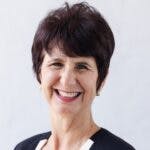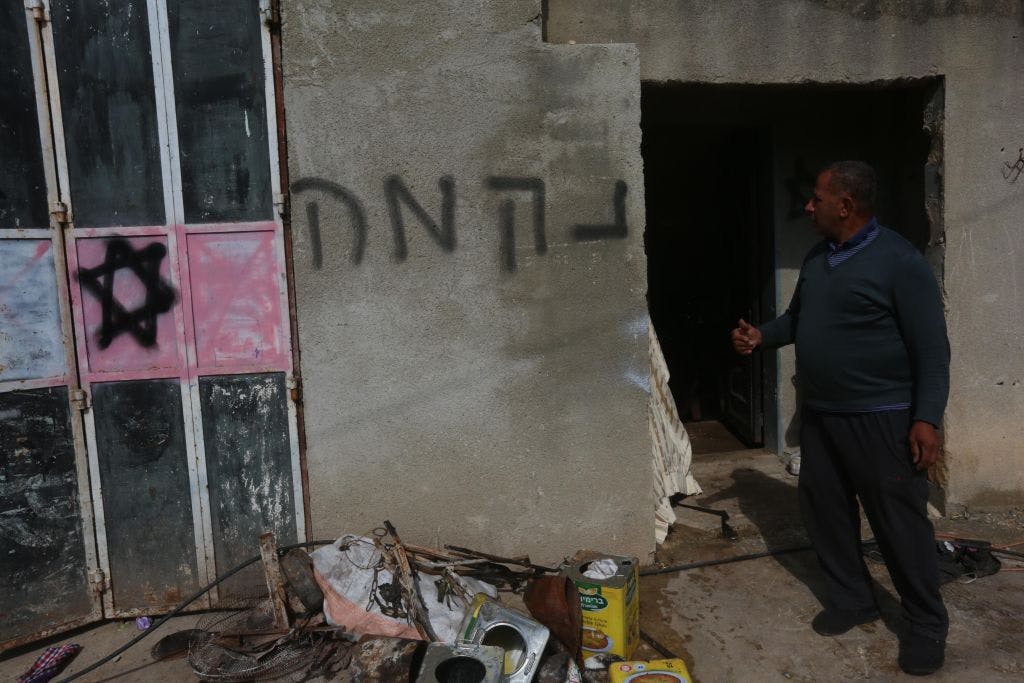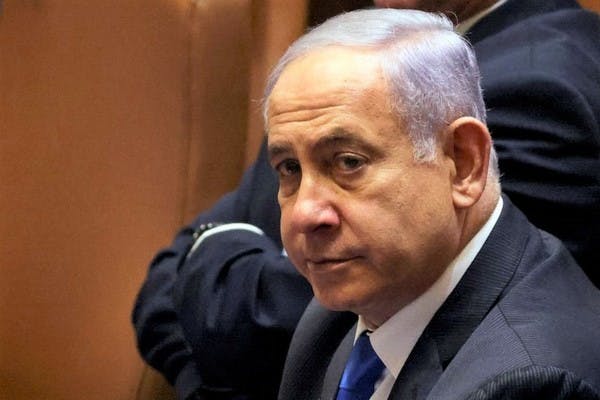Published: 14 March 2023
Last updated: 5 March 2024
Palestinian residents in East Jerusalem can vote in municipal elections, but they don’t — and they suffer as a result. DEBORAH STONE reports.
To the untrained eye, one side of a winding road in East Jerusalem looks much like the other. Pale stone buildings, water tanks and satellite dishes, lines of washing, an occasional struggling succulent.
But Yaniv Mazor can spot the differences. He points out a pile of rubble in an Arab village, remnants of a home demolished because the owners did not have the requisite permit. In another, he notices a build-up of old mattresses and broken furniture, indications of inadequate rubbish removal by the municipality.
In the Jewish suburb, he gestures to a new religious girls’ school, fresh white buildings and high fences with private security systems.
Mazor is a guide with Ir Amin (City of Nations), an organisation dedicated to making Jerusalem a more equitable home for Israelis and Palestinians.

In many ways, Palestinians in East Jerusalem are better off than their fellows in the West Bank or Gaza. They don’t live under Israeli military rule, nor with the political and economic precarity of the Palestinian Authority (PA) or Hamas. Since Israel annexed East Jerusalem in 1980, they have all the advantages of living in a developed country: education, employment, health care. While the Arab Israeli standard of living remains below the average for Jewish Israelis, the gap is closing.
But East Jerusalem is where the Israeli-Palestinian conflict has its jagged edge. Most of East Jerusalem’s Arab population are residents not citizens. They can apply for citizenship, and some have done so successfully, but many don’t want to be Israeli citizens so they are stateless. They cannot vote in Israeli national elections and Israel won’t acknowledge them as Palestinians and allow them to vote in PA elections - if PA elections ever happen. They can get travel permits, and many travel freely, but they do not have passports. Even their residency status is precarious and can be lost if they leave the country for seven years or become resident elsewhere.
They can vote in municipal elections – but the vast majority choose not to.
“People don’t want to give the elections legitimacy,” explains Zahieh Abu Ghannam, an East Jerusalem resident who works as a translator. “Most people think they will get better service from the municipality [if they vote], but they will forfeit the Palestinian struggle.”
The piles of rubbish and demolished houses are directly related to the stand-off over municipal elections: a Catch-22 of an Israeli democracy rejected by Palestinian residents. Arab areas do not have representation, so they are often ignored by the municipality. No one is advocating for them to improve rubbish collection, build a children’s playground, or clean-up their public buildings.
Building is the biggest problem. It is very difficult to get building permits in the crowded Arab areas of East Jerusalem.
“Less than 10% of Palestinian housing in East Jerusalem is built with permits,” Mazor says. “The municipality doesn’t approve most requests. But people don’t want to risk losing their Jerusalem resident status so they can’t leave, and it’s crowded so they build without a permit. They tap into water, sewerage, power illegally. Then the municipality takes legal action and there’s a demolition order.”

There have been moves among some East Jerusalem Palestinians to change the boycott of municipal politics, but they have always fizzled out. There is no advantage for sitting Israeli councillors in encouraging the Arab vote and the Palestinian Authority opposes co-operation in Israeli elections.
“The extremes on each side feed one another,” says Meretz chair at the municipality Laura Wharton, one of the Israeli councillors working to improve equity for Arab residents. “If the residents of East Jerusalem decided to vote it would make a tremendous difference.”
Not all Palestinians oppose voting. In 2018, Aziz Abu Sarah launched a campaign to become Jerusalem mayor, leading a ticket of Palestinian candidates. He dropped out, saying his right to residency had been questioned by Israeli authorities. But some Palestinians believe the failure of Abu Sarah’s campaign had more to do with threats from Fatah, the party which controls the Palestinian Authority.
“They don’t want leadership in Jerusalem that they can’t control,” says a Palestinian woman, who asked not to be identified.
She is part of Hoqoqoba (Our Rights), a new group working for Palestinians representation in East Jerusalem. “We need to use our rights," she says. "There’s not a single Palestinian on the Planning Committee in Jerusalem. We pay our taxes; we live in this city. And having Palestinian representation will give Israel a taste of Palestinian leadership."
Meanwhile, Jewish neighbourhoods like Gilo and Har Homa are growing in East Jerusalem, the traditionally Arab parts of the city. Mazor says the new neighbourhoods are clearly to designed to establish settlements and attract Jewish citizens.
“There are all these new neighbourhoods and it’s significantly more affordable than West Jerusalem. You see the plans, there’s a synagogue not a mosque and a Hebrew name and subsidies for citizens, which most Palestinians are not. Most Israelis don’t think of places like Gilo as settlements, but they are," he said.
With no sign of resolution to the conflict, he says the battle for equity is essential because separate neighbourhoods are inevitable.
“It’s a geography of fear. If I am driving in a strange neighbourhood and all the signs are in Arabic and people are wearing kaffiyeh, I’m going to feel afraid and the same is true in reverse.”
Top photo: Quosay Burqan with his children in front of the ruins of their home in Silwan, East Jerusalem, after it was demolished by Israeli authorities in 2019. (Faiz Abu Rmeleh/Activestills.org)




